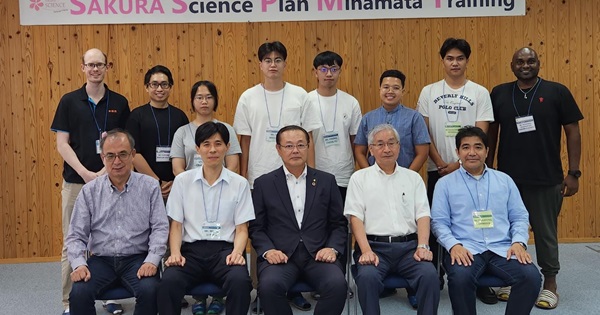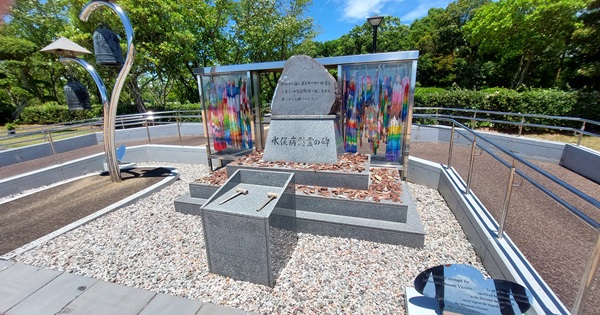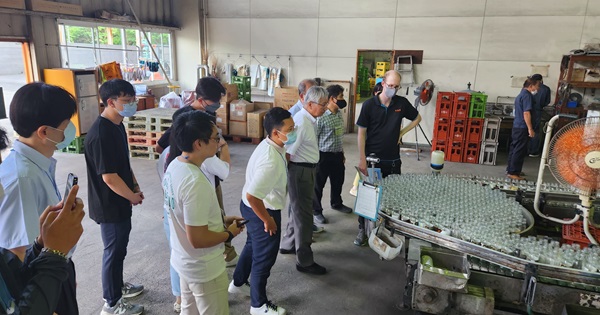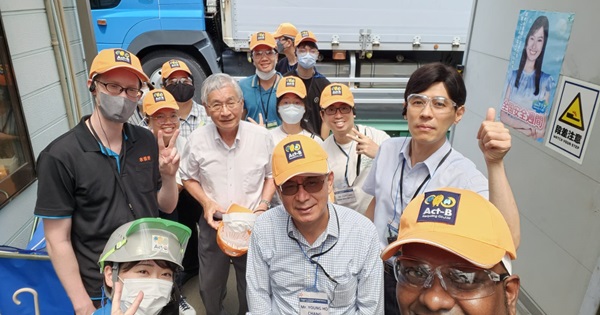Two of SUSS' Master of Management programme students, Clifford Wah and Mohamed Shammir had the privilege to participate in the Japan Sakura Science Minamata Programme from 26 June to 1 July 2023. The programme invites young and talented foreign individuals for short−term visits to Japan, giving them the opportunity to experience and contribute to innovation in Japan's cutting−edge science and technology culture. This programme also serves to promote continuous international collaboration, cooperation, and interaction between Japanese educational and research institutes, leading to the strengthening of ties across borders.

Master of Management students, Clifford Wah ( back row, 2nd from left) and Mohamed Shammir (back row, 1st from right) with other stakeholders from the Sakura Science Plan Minamata Training
The two students shared several key takeaways from this trip, in particular, this learning journey sheds light on the Minamata Disease which arose due to a company’s irresponsible act of releasing huge amounts of mercury to the sea which affected marine life and subsequently the human population because of seafood consumption. After this incident, the Japanese government stepped up its efforts to rebuild the city and made a commitment to prevent such tragedies from happening. For instance, a huge Eco-park was built on the reclaimed land which houses sports facilities, flower gardens, the Minamata Disease Municipal Museum and the Memorial Monument for the victims of the Minamata Disease at the site where the mercury was previously released. In addition, the Japanese government also built the Minamata Eco-town which includes sewage disposal and recycling, electrical appliances recycling plant and a glass bottle reuse and recycling plant. The citizens are also taught to have a system of garbage classification which separates their wastes into 23 different categories. The commitment of the Japanese government to protect its citizens and the environment is evident in their investments in technology to recycle water, waste and in educating the population towards environmental sustainability.

Minamata Disease Memorial Monument

Students viewing the glass bottles recycling system

Students on a recycling tour with hosts of the Sakura Science Minamata Programme
Clifford recounted his meaningful experience from the programme, “The Sakura Science Minamata Programme 2023 was an eye-opener as I learnt about the culture and environmental initiatives of Japan. This brought out the fact that each part of society is important to ensure that a country prospers. The people, government, and businesses should work together to ensure that the environment is safe for everyone to live and play in. Through the programme, I learnt that prevention is better than cure, as seen in the case of the Minamata Disease which affected the lives of many, even to this day, as we witnessed affected citizens going through ongoing physical therapy to aid in their lives. Thank you for giving me the opportunity to be a part of this programme.”
Relating to Singapore, conservation initiatives such as our NEWater system are similar to Japan’s initiatives where we recycle wastewater. Moving forward, the emulation of Japan’s initiatives via stepping up recycling and proper waste classification would enhance sustainability and conservation efforts.